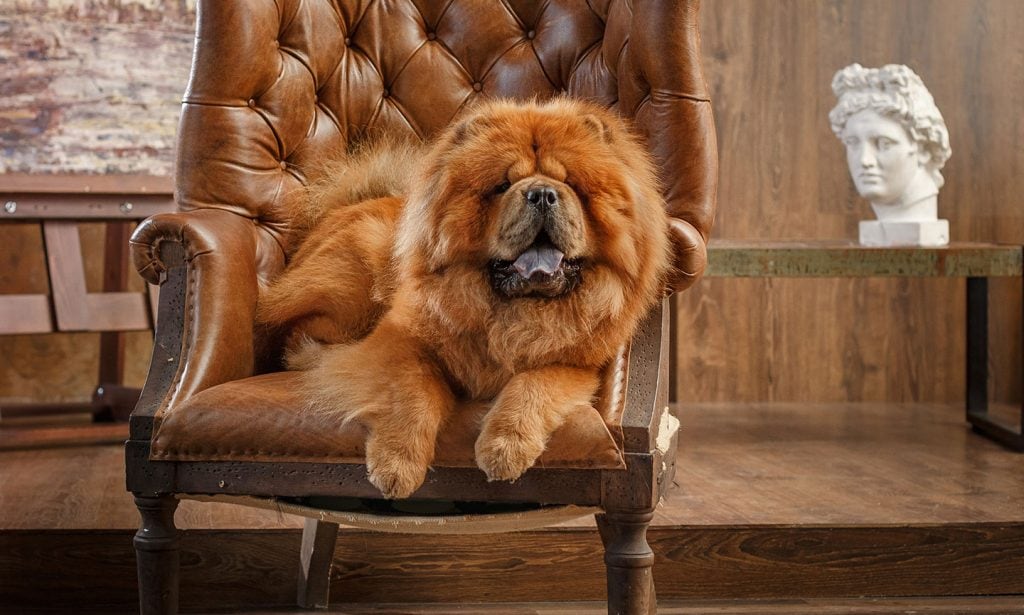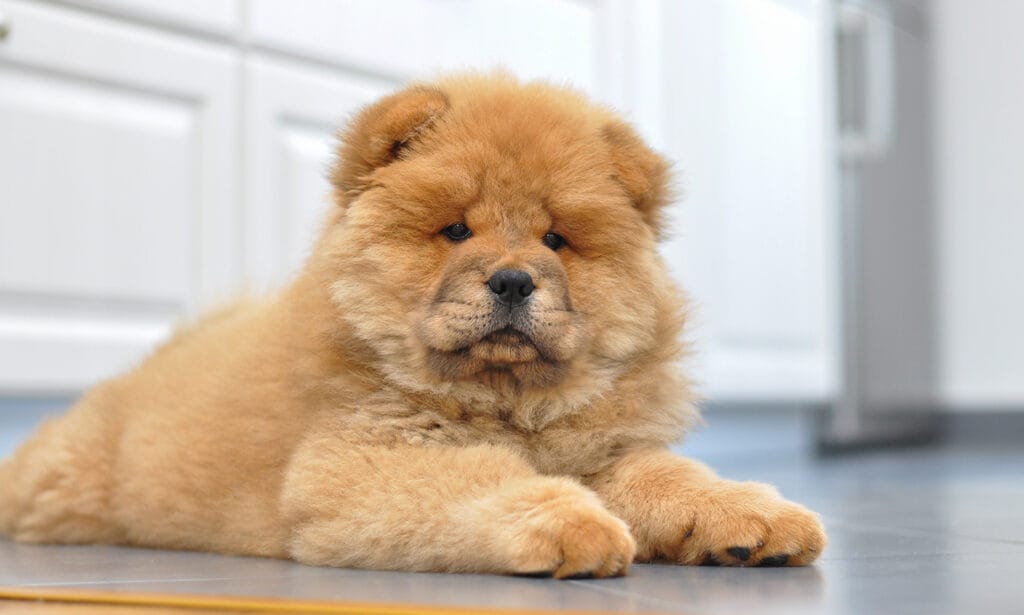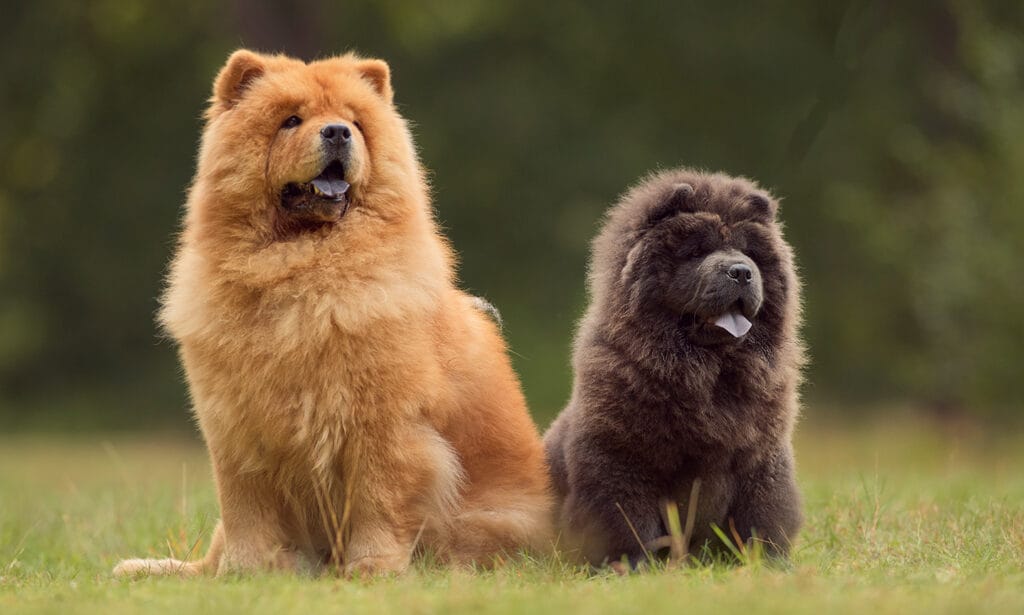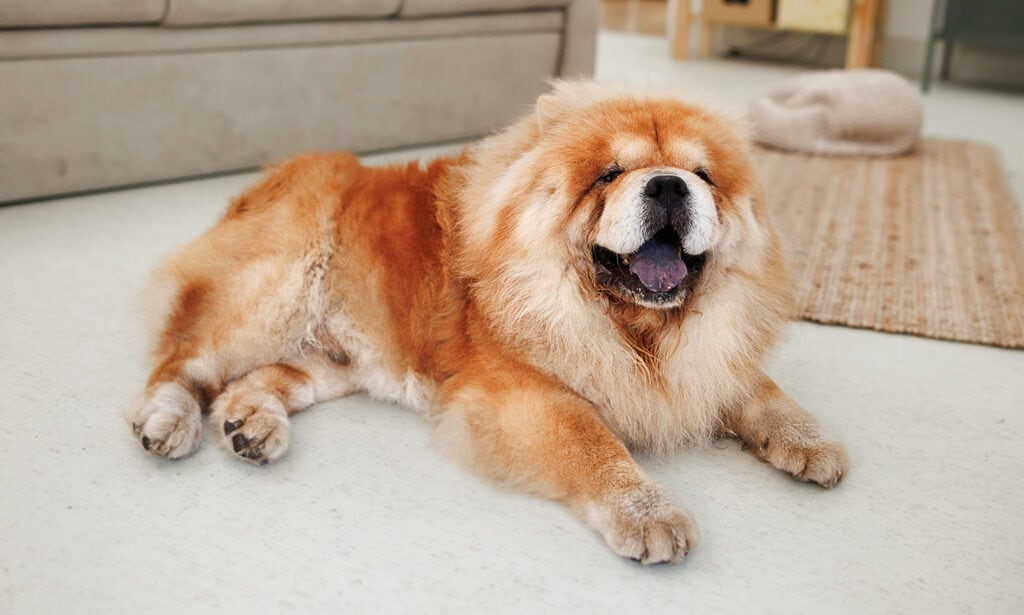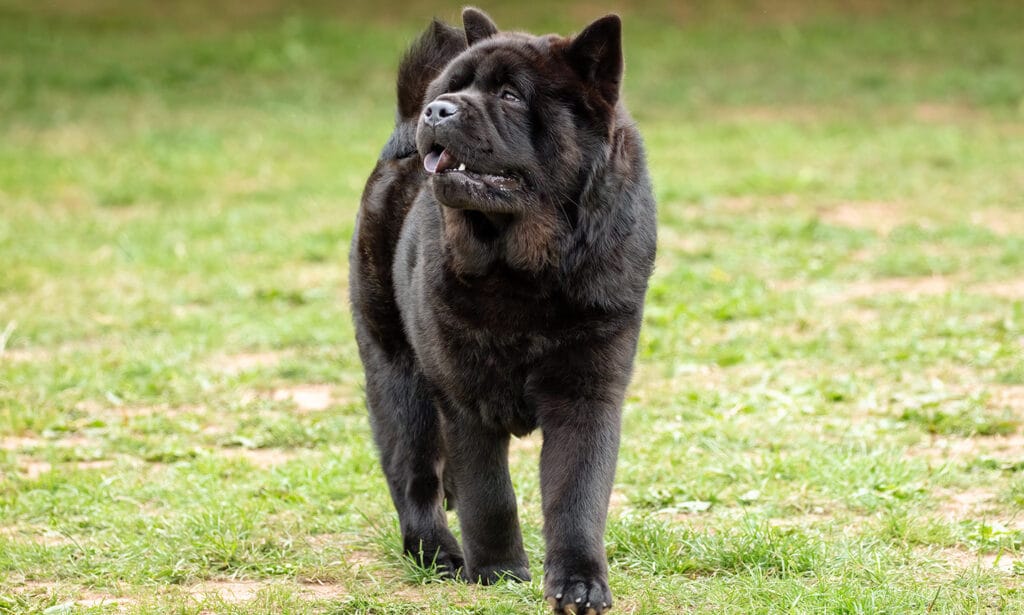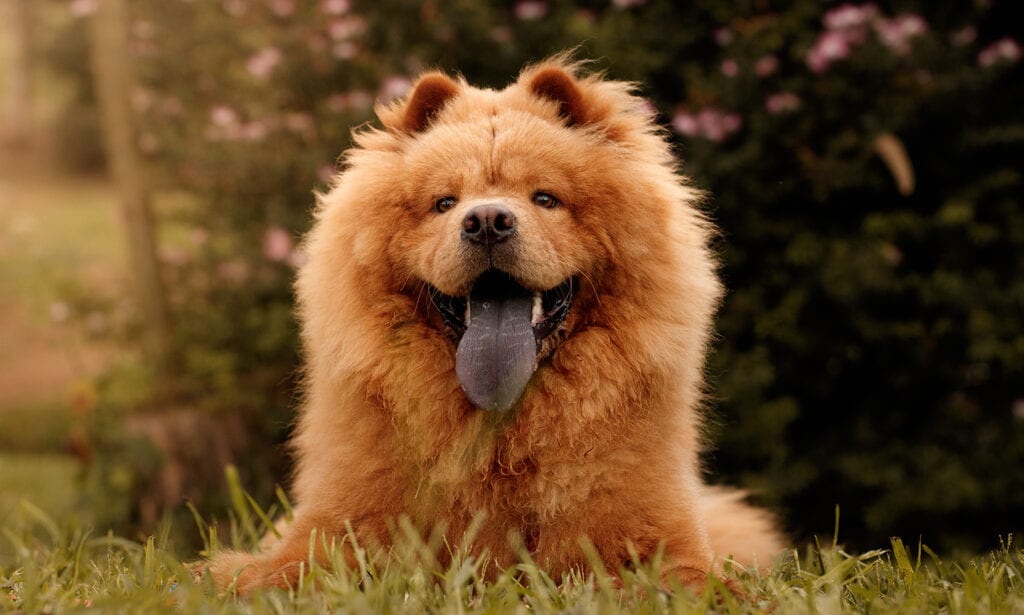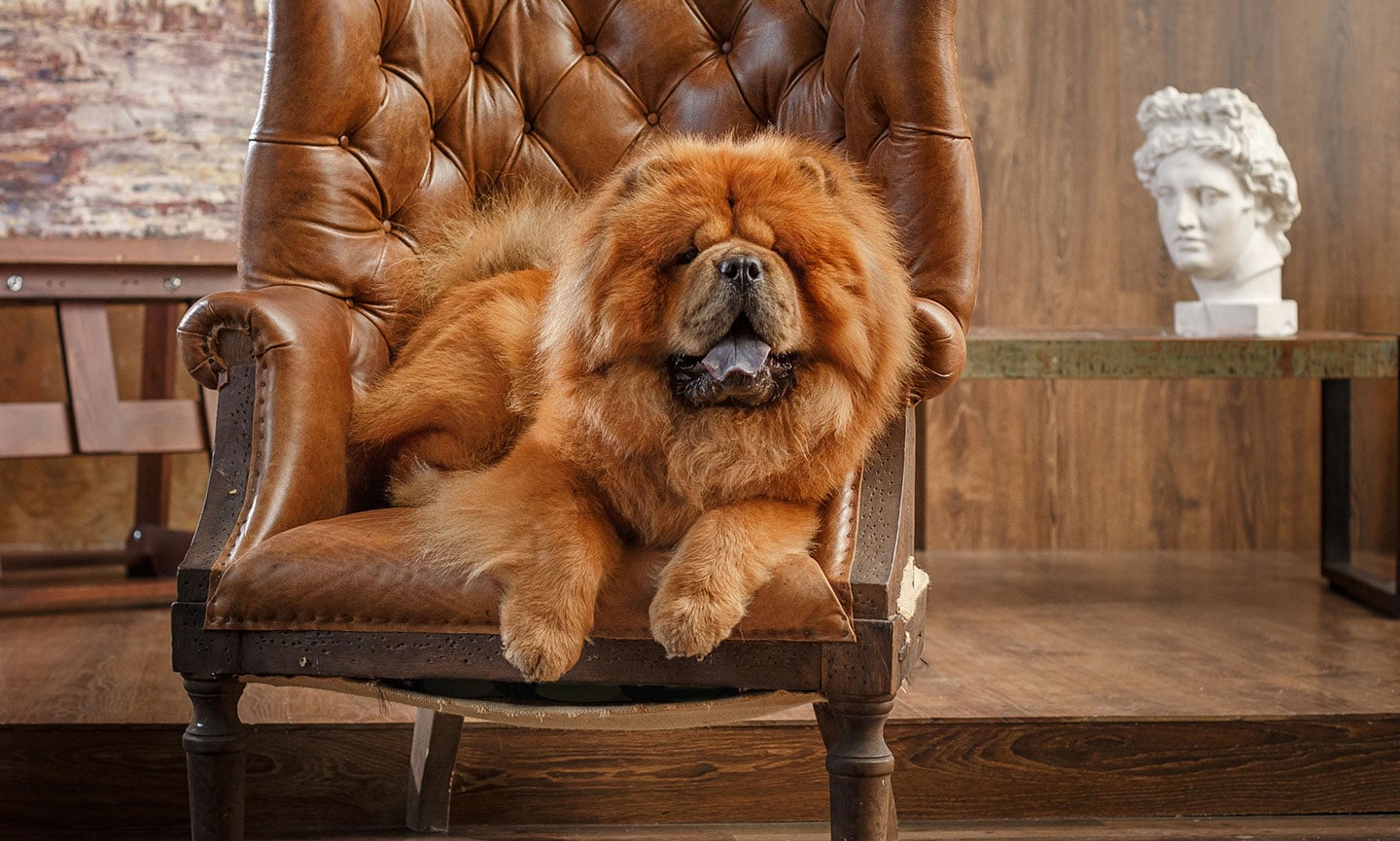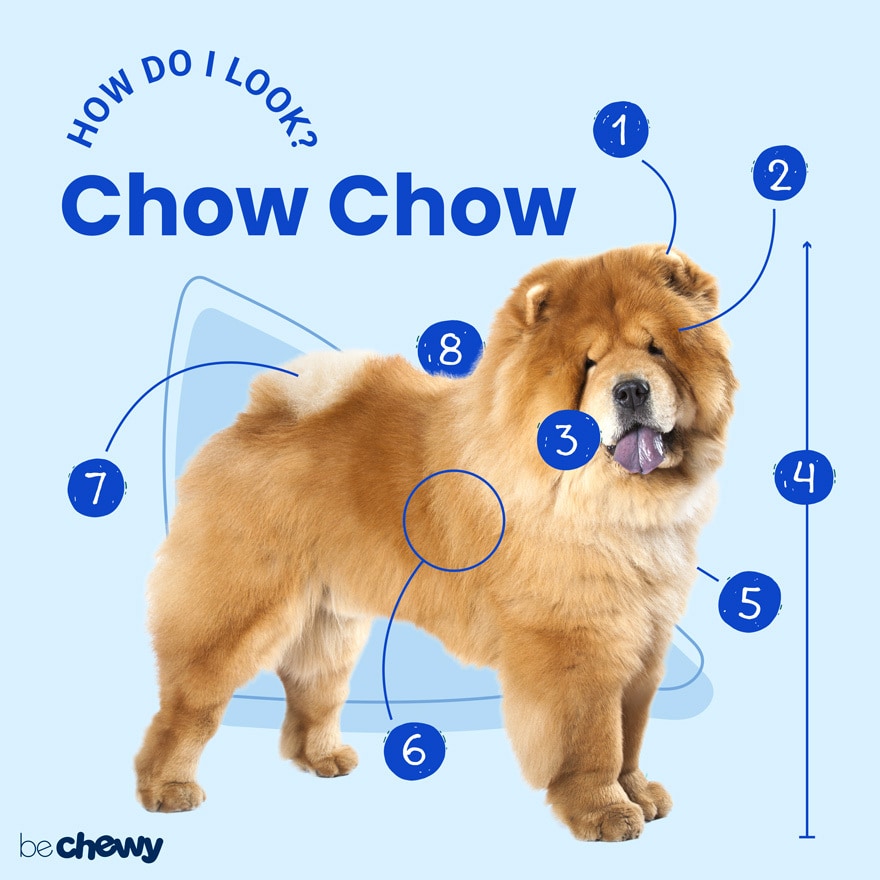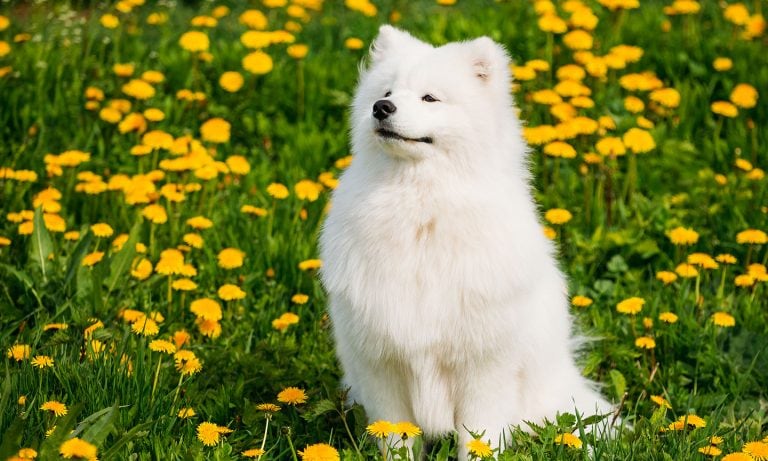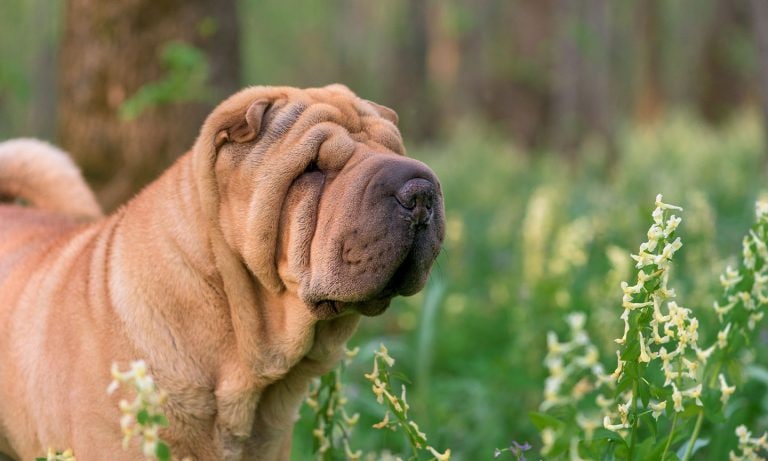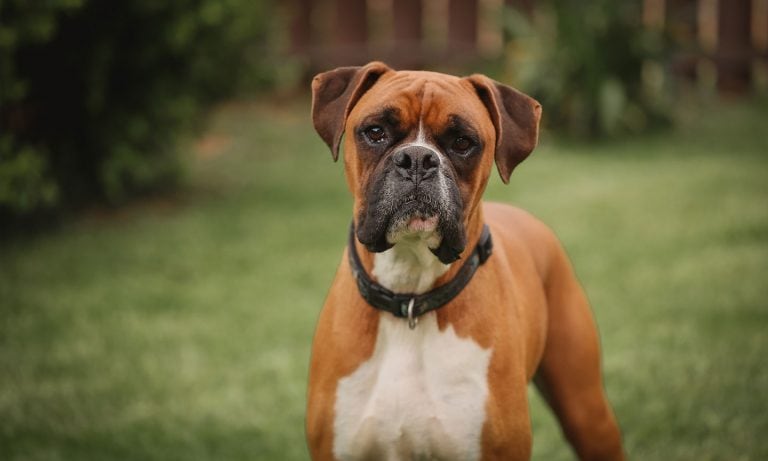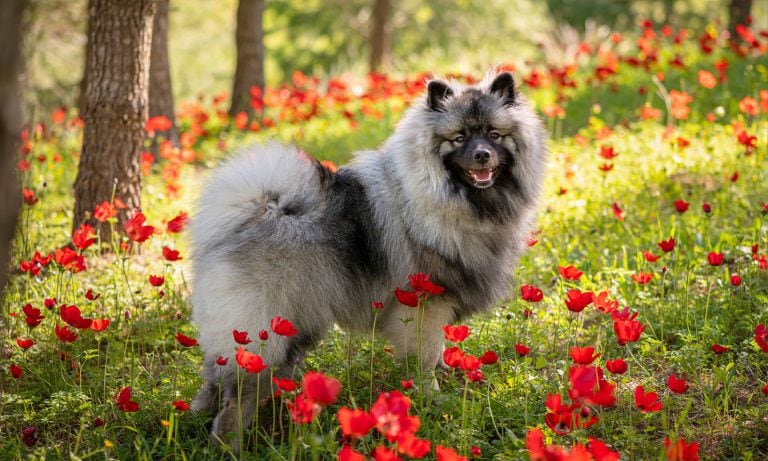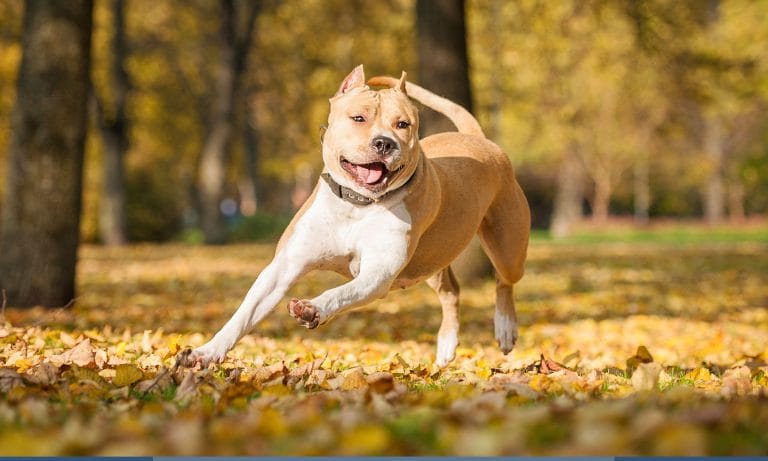Looking for a dog to live the A-list life with you? Get ready to lift the velvet rope for the Chow Chow. Regal in appearance, these fluffy dogs have been companions to celebrities and royalty alike. They enjoy creature comforts, like mornings lounging in bed and the AC permanently set on high. (Don’t even think about touching it!) Their signature lion-like hairstyle and trademark good looks takes maintenance, but you understand the value of a good morning routine. Protective and aloof, Chow Chows don’t accept just anyone into their inner circle, but that’s OK—neither do you. Send the other applicants on their way; your search for the perfect canine partner is over.
Breed Snapshot
Temperament:
IntelligentLoyalAloofCoat Color:
BlackBlueCinnamonCreamRed
Best For
Independent and loyal, Chow Chows are generally quiet dogs with a seriously gorgeous mane. They thrive in calm homes with an experienced, confident pet parents who are ready to not only take on all that grooming but also provide consistent training and early socialization.
Chow Chow Temperament
Not ones for being overly affectionate, these aren’t your average people-pleasing, one-of-the-pack dogs. Chows are generally quiet and naturally well-behaved.
Chow Chows are super clean, easy to potty train and won’t fill your place up with a strong dog smell—traits admired by everyone. Not only that, they’re low maintenance when it comes to exercise, which balances out their need for grooming. Also, these pups are ready to protect your space.
Chow Chows can take time to warm up to strangers. (They are often considered the cats of the dog world.) Their reserved natures and natural scowling expressions can sometimes be mistaken for signs of aggression. Things will go a lot smoother when introducing your pet to new people if you signal everything’s OK by making the first move and initiating the greetings, letting your dog follow your lead. If you start socializing and training your Chow Chow puppy early, they can make great family dogs and can even get along with other dogs in the home. That said, if you have cats, it’s best to find a dog more accepting of felines than the Chow Chow.
Wondering if Chows are a good fit for homes with kids and babies? This independent breed usually does best with older family members who understand that Chow Chows typically don’t enjoy being held or cuddled. So, in addition to training and socializing your Chow early, teach children to properly interact with dogs and handle them with care.
How to Care for a Chow Chow
Chow Chows, with their plentiful double coats, require lots of grooming. And their stubborn nature means you’ll need to start training and socializing them as puppies. Thankfully, they aren’t high-energy dogs who need a lot of exercise. A daily walk or two will be sufficient. They also prefer cooler environments to warmer climates (all that thick fur!), so if you live in warmer regions, be sure to crank the AC! While they may not be overly showy with their affection, they will go to great lengths to look out for you and your family, and they’re super smart and quick learners.
Chow Chow Health
The good news is that Chow Chows are generally healthy canines. However, like any breed, they have some health problems a potential pup parent should know about. If you’re planning on adopting a purebred Chow, it’s wise to research responsible breeders. Still, Chows can suffer from a few health issues, including:
- Allergies: Chows who have allergies will commonly have itchy skin around their feet, stomach, skin folds and ears. Allergies can include seasonal allergies and food allergies, and your vet may recommend testing or consultation with a veterinary dermatologist. Treatment may include medicated shampoo, prescription diet or oral and topical medications.
- Eye Problems: Chows can suffer from eye problems that can cause blindness, like cataracts and glaucoma, and ones that affect their eyelids, like ectropion (droopy eyelids or eyelids that roll outward) and entropion (eyelids that roll inward). Treatment might range from eye drops to surgery depending on the specific condition and severity.
- Hip Dysplasia: Hip dysplasia is a skeletal condition in which the ball and socket that make up a dog’s hip do not develop properly, causing them to grind together and limiting a dog’s range of motion and ability to get up, jump, run or climb up stairs. You can help protect your pup from the effects of hip dysplasia by keeping your pup’s weight in check and limiting physical exercise. If the case is severe, surgery may be required.
- Elbow Dysplasia: This is an inherited condition where the three bones of the elbow joint don’t fit properly. It can cause pain and difficulty walking and often leads to arthritis. X-rays are needed to confirm the diagnosis, and surgery is often recommended.
- Patellar Luxation: Patellar luxation is a condition when the dog’s knee slips out of alignment or gets dislocated, which can cause difficulties and pain while walking. If it’s a mild case, it can be treated with medication; if it’s more severe, surgery may be required.
- Cancer: Chows are prone to certain cancers, like melanoma (skin cancer). The cancer is often treated by removing the tumor or through chemotherapy. It’s important to catch the cancer early. Make sure you have any new lumps and bumps checked by your vet.
- Endocrine Conditions: Chows may suffer from conditions, like hypothyroidism (which causes your dog’s metabolism to slow down and can lead to hair loss, weight gain and energy loss) and alopecia X (a type of hair loss that often affects dogs with thick undercoats), as well as diabetes mellitus (which may present with increased drinking and urinating). Hypothyroidism and diabetes are typically detected through a blood test and can be managed with medication. Alopecia X may be treated with a variety of options from melatonin to medications, depending on the severity of the condition.
Chow Chow History
The Chow Chow breed can trace their origins as far back as 206 B.C., thanks to artifacts that have been found from China’s Han Dynasty (206 B.C.–220 A.D.) depicting the breed. Thought to be one of the world’s most ancient breeds, some say Chows may have been around even earlier than that.
Originally, the breed served as hunting and sporting dogs in early Chinese history and was used to herd livestock and pull dog sleds. Over time, Chow Chows rose through the ranks to become faithful companions to royalty. Long before the age of influencers, these distinguished dogs were favorites among Chinese nobility. Later on, legend has it that the United Kingdom’s Queen Victoria toted around her own Chow Chow dog with her wherever she went. (It was said her friends felt this habit was un-queenly.) More recently, the American Kennel Club officially recognized the breed in 1903, and today the dog is in the top 100 of the AKC’s rankings of popular breeds in America.
Are you looking to add a Chow Chow as a pet to your family? You can find reputable breeders on the American Kennel Club’s website, where the average Chow Chow puppy costs between $1,800-$3,000. For that price, you usually are getting a dog who’s been screened for health and temperament issues, and they might even come with pedigree papers. You can also reach out to Chow Chow rescue organizations to adopt a Chow, keep an eye out for the breed at your local animal shelter, or search Chewy’s database of adoptable dogs in your area.
FAQs
Are Chow Chows hypoallergenic?
No, Chow Chows are not a hypoallergenic breed. If you struggle with allergies to pet dander or fur, the Chow’s propensity to shed will likely put this breed in the “hard pass” category for you.
What are the most common Chow Chow mixes?
- Chow Chow-Labrador Retriever mix (Chabrador)
- Chow Chow-Husky mix (Chusky)
- Chow Chow-German Shepherd mix (Chow Shepherd)
- Chow Chows-American Pit Bull Terrier mix (Chowpit or Pitchow)
- Chow Chow-Shar Pei mix (Chow Pei)
- Chow Chow –Golden Retriever mix (Golden Chow or Golden Chow Retriever)
- Chow Chow-Akita mix (Akita Chow)
- Chow Chow-Rottweiler mix (Rottie Chow)
- Chow Chow-Chihuahua mix (Chow Chow-Chihuahua)
- Chow Chow-Corgi mix (Chow Chow-Corgi)
Note: These are not purebred dogs but mixed breeds.
Why are Chow Chows’ tongues blue?
Chow Chows have black-blue tongues due to the presence of pigmented cells—the same ones that give us humans our unique skin colors. Chows aren’t born with blue tongues; they start to turn blue when their eyes open. That said, experts don’t exactly know why Chow Chows have this particular tongue color.
Are Chow Chows mean?
While the breed is not known for being mean (they do love their people!), they can be suspicious of strangers. Early socialization and training are key to helping your Chow be well-mannered with guests.
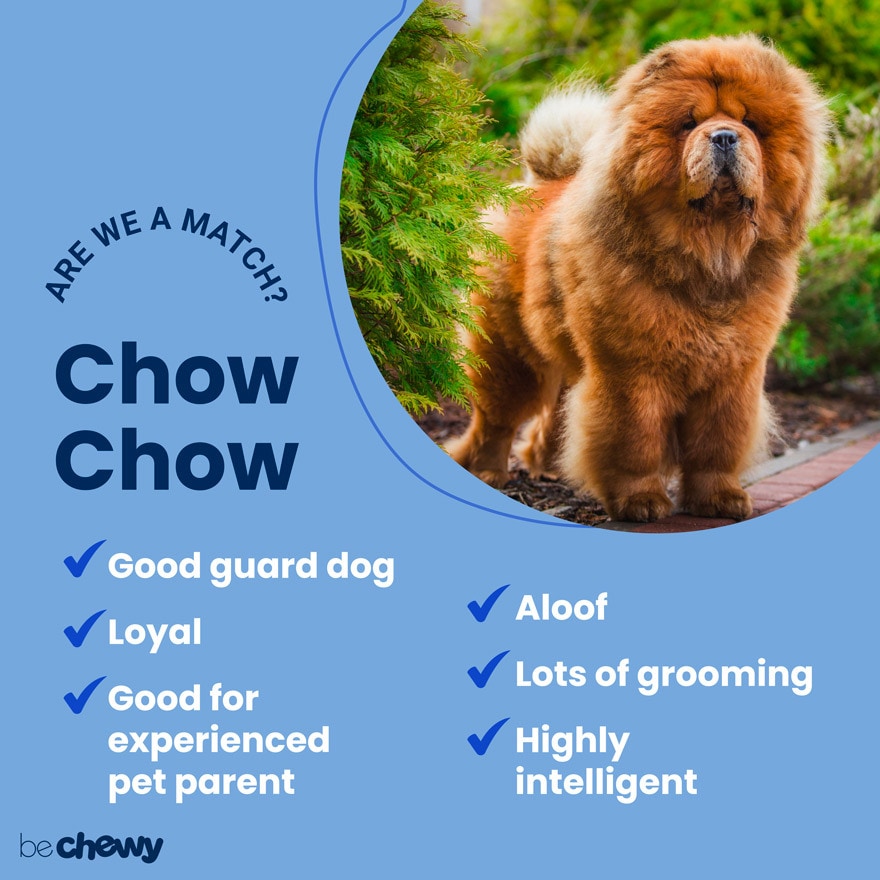
Top Takeaways
Chow Chows are loyal companions who need a moderate amount of exercise and a lot of grooming. If you are looking for an independent dog, the Chow can make an amazing family pet.
Expert input provided by Jerry Klein, DVM, chief veterinary officer of the American Kennel Club; and certified dog trainer Mark Forrest Patrick, 2021 chair of the board of directors for the Association of Professional Dog Trainers and president and CEO of Tuxedo’s K9 Training Camp.
Breed characteristic ratings provided by veterinarian Dr. Sarah J. Wooten, DVM, CVJ, a veterinarian at Sheep Draw Veterinary Hospital in Greeley, Colorado; dog trainer and behavior consultant Irith Bloom, CPDT-KSA, CBCC-KA, CDBC, owner of The Sophisticated Dog, LLC, in Los Angeles; and certified animal behavior consultant Amy Shojai, CABC, in Sherman, Texas.
The health content was medically reviewed by Chewy vets.

Search for Adoptable Chow Chows Near You
Female Names
- Nala
- Luna
- Bella
- Coco
- Willow
- Chloe
- Bella
- Mochi
- Sasha
- Suki
Male Names
- Bear
- Simba
- Teddy
- Koda
- Leo
- Loki
- Thor
- King
- Apollo
- Zeus
Share:
